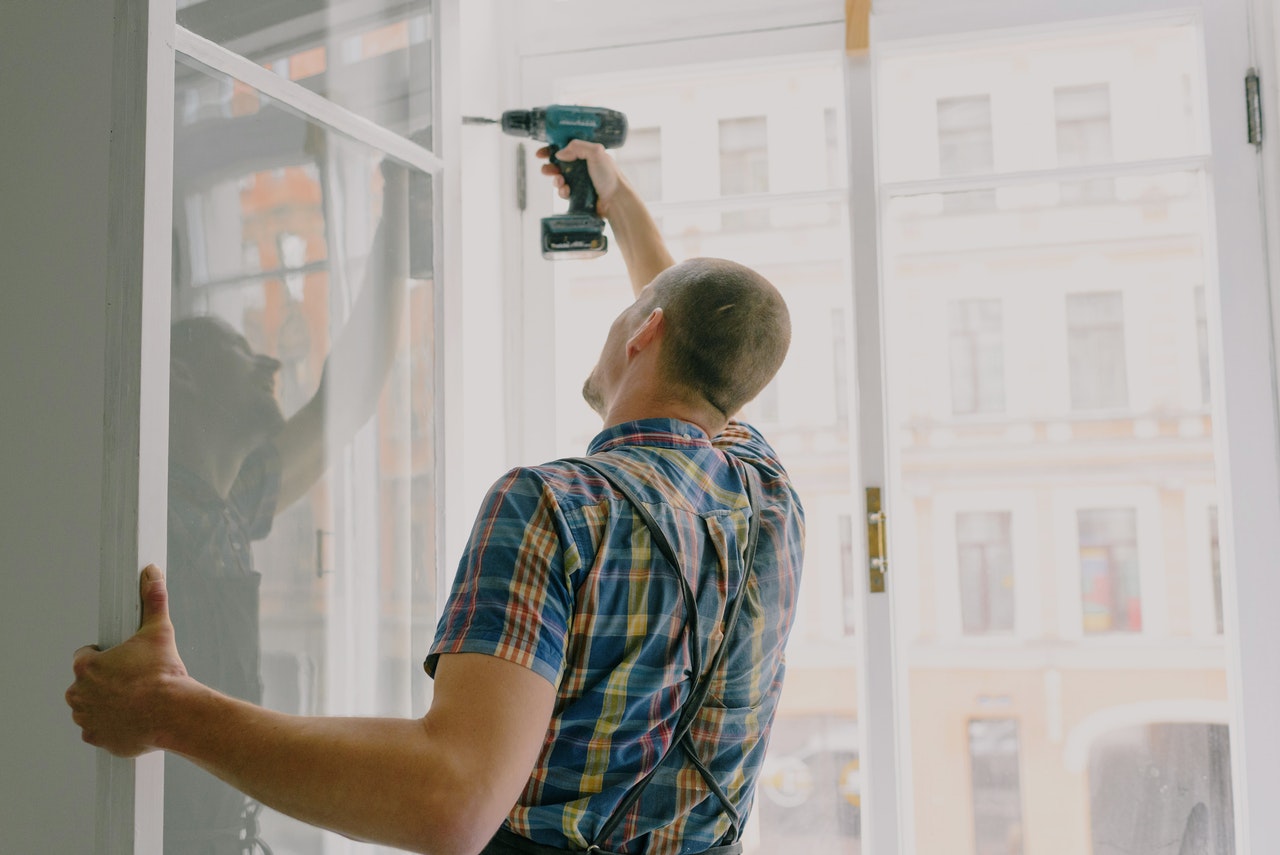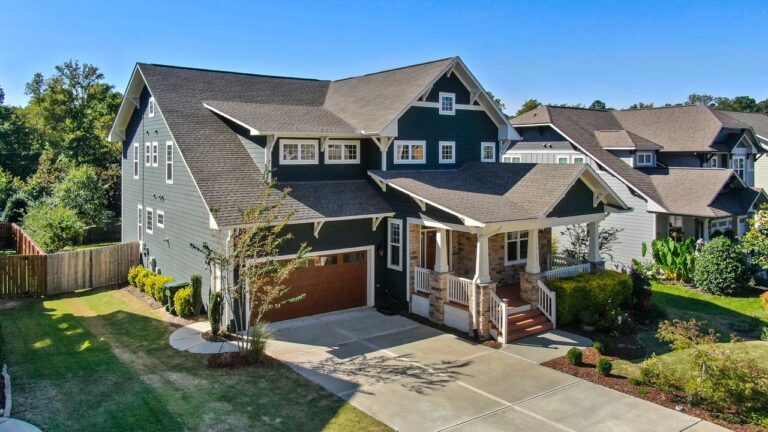10 Common Home Repairs That Cost Major Money

Buying a house is far more costly than simply a down payment and monthly mortgage payment. Owning a piece of real estate can come with its share of extra bills, particularly when considering unexpected home repairs. In fact, in 2020, the average household spent $13,138 on home repairs and other services compared to just $9,081 the previous year.
Home repair costs can quickly add up; even if you’re tackling the work yourself, you’ll need to factor in the price of materials—not to mention your time. While some experts recommend that you set aside at least one percent of your home’s value each year for maintenance and home-related emergencies, one of the hardest parts of homeownership is that many home repair costs are hard to predict and value. We’re rounding up some of the most common home repair costs so you can be prepared if disaster strikes.
Estimated Costs of the Most Common Home Repairs
While low-cost preventive measures like cleaning your gutters or switching out storm windows can help keep common home repair costs down, when your pipes burst and flood the basement, you can be on the hook for thousands of dollars—money you have to fork over immediately. Or maybe a tornado sweeps through your town, bringing with it gusts of wind that knock a tree onto your roof. For many Americans without substantial savings, a catastrophe in that range would be nearly impossible to cover, which is why it’s wise to prepare for when you may need to make emergency home repairs.
1. Foundation Repair
Foundation damage affects houses when the weather swells the water table and contracts with drought. These kinds of shifts put the foundation at risk, and the extra moisture potentially makes the wood support beams an enticing target for termites. Since the foundation is the literal footprint of your home, repairs can be complicated and expensive.
Foundation damage is also a common home repair needed after home inspection and can cost north of $10,000.
Average cost of foundation repair: $2,008 to $7,040, up to $40,000
2. Electrical Issues
While DIY- and Pinterest-inspired home repairs might seem a growing trend, electrical issues and wiring are usually best left to the professionals (i.e. electricians) as they require a very specific skill set. The risk of a mistake and potentially electrocuting yourself—or, at worst, starting a fire—makes hiring a certified professional well worth the added expense. And depending on what kind of electrical issues you’re facing, your bill could be anywhere between a few hundred to thousands of dollars.
Average cost of electrical repairs: $141 to $419 for minor repairs; $2,000 to $6,000 for full electrical wiring
3. Roof Repair
When there’s a problem with your roof, you need to fix it fast before long-term damage is done to the most essential part of your home. Key signs of room damage are ceiling stains, leaks, or missing shingles. If you suspect something is wrong with your roof, call an expert right away, and be prepared to pay thousands of dollars for repairs.
Average cost of roof repairs: $300 to $2,000 for partial repairs; $5,397 to $11,035 for a full roof replacement
4. Repair or Replace a Water Heater
Due to mineral buildup, overuse, and the routine breakdown of components, water heaters unfortunately do not last forever. Depending on how extensive the repairs to your water heater are, you could be on the hook for a new water heater entirely. And if you’ve ever taken a cold shower in the middle of winter, you know this is one home repair that is essential to your quality of life.
Average cost of water heater repairs: $579 to repair, up to $1,300 to replace
5. Water Damage
Water damage is a fairly common home repair, as it can come from something as small as a hole in a pipe, be caused by the shoddy work of the previous plumber, or be the result of a leaky roof and unusual storm events.
Average cost to fix water damage: $1,181 and $4,938, with an average of $3,046
6. Repair Pipes or Install New Pipes
Fixing older pipes is the kind of home repair often needed after a home inspection. Dated construction materials with a known problem in their manufacturing, ancient septic or sewage drain systems, and just basic failure caused by the passage of time will all likely come into play on whether you’ll have to consider pipe problems in the overall financial picture of homeownership.
Average cost to repair pipes: anywhere from $300 for a leak repair to $2,500 for a sewer line repair
7. Septic System Repair
Replacing a septic system is far from glamorous work. And to add insult to injury, it’s a home repair that could cost north of $1,000 to bring in a professional to do the work for you. Good plumbers deal with sewage on a regular basis, but it’s not their favorite home repair task, understandably. Expect to pay a premium for someone to do the dirty work of repairing your waste lines.
Average cost to repair a septic system: $1,702 average to repair, $3,000 to $9,500 for a new installation
8. Heating or Air Conditioning Repair or Installation
Whether running on gas, oil, or electricity, a new heating or cooling unit is a costly but worthwhile investment, one that should last you 12 to 15 years. And in the middle of the summer during a heatwave—or, likewise, in the middle of winter during a cold snap—this is one home repair that you’re not going to want to put off until it fails completely.
The financial savings from having a newer, more energy-efficient A/C unit are often worth the cost in itself, but having the piece of mind that you’ll be able to control your family’s environment in extreme conditions is also something to consider.
Average cost to fix a heating or air conditioning unit: up to $577 for A/C repair, $5,000 to $12,500 for a professional furnace installation
9. Mold Removal
Mold develops inside homes as a result of moisture and can lead to health problems in all individuals, but is especially dangerous for small children. If you discover mold in your home, you need to get it removed ASAP.
Removing minor mold growth can sometimes be achieved with a mold removal product, hot soapy water, or a bleach mixture, but if the growth is extensive, you may want to call in a professional. The pervasiveness of spores in our environment can often be controlled with the right maintenance, but if you discover large sections of mold within the walls of your home or on surfaces in your real estate, it needs to be addressed immediately.
Average cost of mold remediation: $2,218
10. Termite Damage
The problem with termites is that they literally eat your house and, figuratively, your money. According to Terminix , each year, termites cause $5 billion worth of damage in structures across the United States, and an infestation can easily cause $8,000 of damage to your home.
The cost for this home repair will depend on how long the pesky insects have been chewing away at your home’s foundation, so at the first sign of termite damage, you will want to call in a professional. It’s also usually smart to have a pest control expert take a look at your real estate before opening it up for sale on the market to alleviate unexpected surprises at closing.
Average cost to repair termite damage: Average of $565 for treatment, though extensive termite damage to a home can cost an average of $8,000
Paying for Upcoming Home Repairs
Surprise expenses can be detrimental to your monthly budget. If you have an emergency fund, it might be your saving grace. However, last year 38 percent of Americans didn’t even have $500 to cover emergency home needs, so it’s likely if the need arises for one to make one of these home repairs, you may need a source of funding to cover the bill.
If you’re facing a looming roof repair or an unexpected foundation fix, a personal loan might be able to help. If you choose a lender that offers reasonable interest rates and fixed monthly payments, it can be less painful financially to hire experts to finish the job.
Don’t be like the 16% of Americans who cover their emergency expenses with credit cards.
A personal loan can help you avoid paying those high interest charges on already costly repairs. Credit card debt can balloon all too easily, but with a personal loan, you can choose a fixed interest rate and a straightforward payment schedule.
One thing to try to avoid is using your credit card to fund an emergency home repair. Typically, a credit card will have a higher interest rate, which can make your small repair become a hefty bill.
Unlike a credit card, SoFi Personal Loans have absolutely no fees or prepayment penalties. Depending on your individual financial history, borrowing with a small loan may also raise your credit score. So not only are you repairing your home, but you could be building better credit. Double win.
SoFi offers loans perfect for home improvement with low rates and an easy to manage payment schedule for those who qualify. SoFi also offers unemployment protection, so if you suddenly lose your job, you can put a hold on your loan.
The Takeaway
Unexpected home repair costs like fixing termite damage or replacing a broken water heater can quickly consume your savings. To prepare for any unforeseen house problems down the road, it’s smart to have a savings account or loan to draw on that you can dip into when needed. Prices for all home repair costs will vary based on where you live and the extent of the damage you need to repair.
Disclosures:
SoFi Loan Products
SoFi loans are originated by SoFi Lending Corp. or an affiliate (dba SoFi), a lender licensed by the Department of Financial Protection and Innovation under the California Financing Law, license # 6054612; NMLS # 1121636 . For additional product-specific legal and licensing information, see SoFi.com/legal.
Disclaimer: Many factors affect your credit scores and the interest rates you may receive. SoFi is not a Credit Repair Organization as defined under federal or state law, including the Credit Repair Organizations Act. SoFi does not provide “credit repair” services or advice or assistance regarding “rebuilding” or “improving” your credit record, credit history, or credit rating. For details, see the FTC’s
website .
Third Party Brand Mentions: No brands or products mentioned are affiliated with SoFi, nor do they endorse or sponsor this article. Third party trademarks referenced herein are property of their respective owners.
External Websites: The information and analysis provided through hyperlinks to third party websites, while believed to be accurate, cannot be guaranteed by SoFi. Links are provided for informational purposes and should not be viewed as an endorsement.
PL18165
This post is originally on Sofi.






